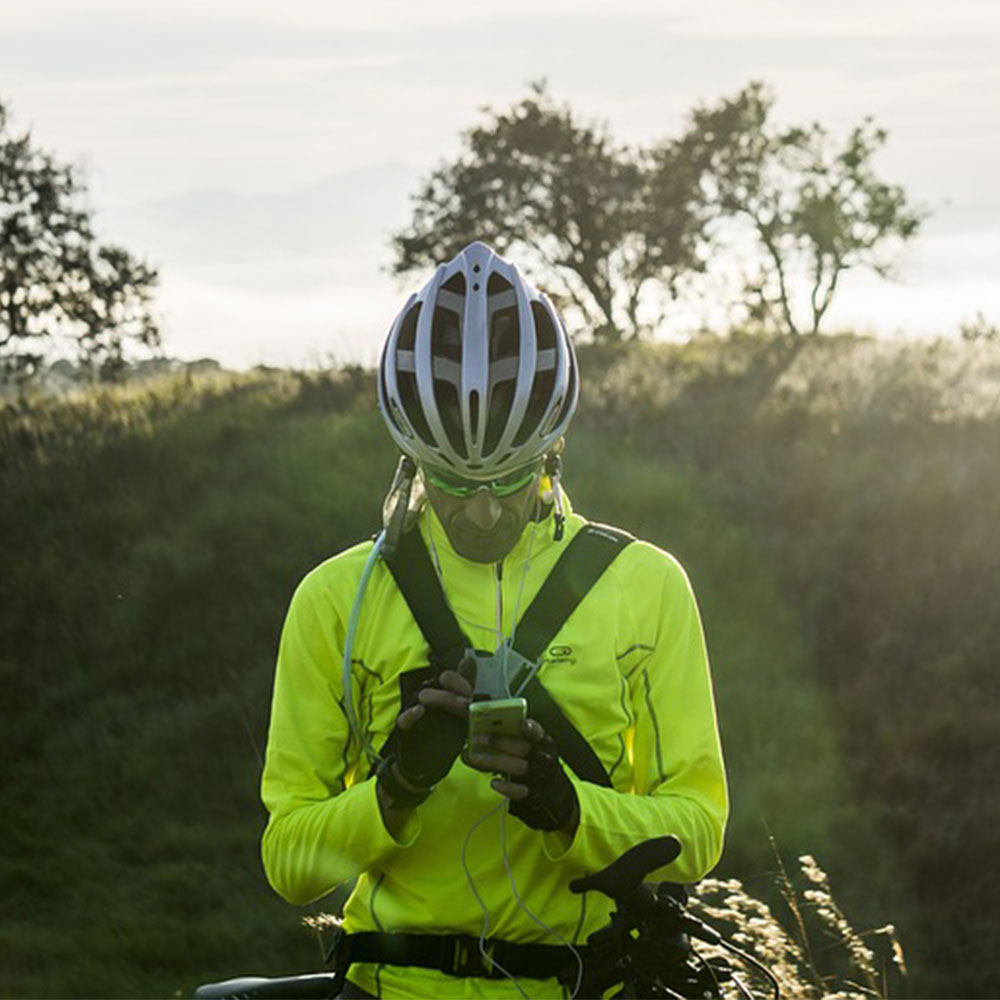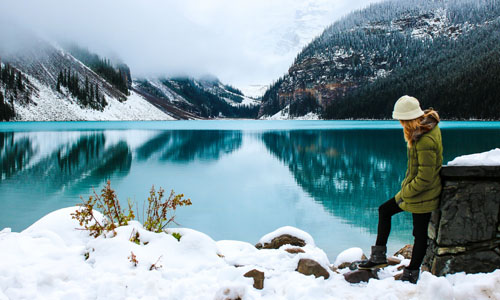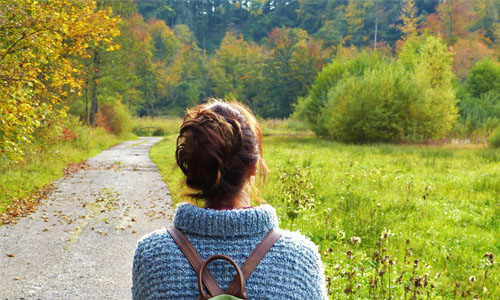Busting Some of the Top Hiking Myths
Author

Chris shares his passion for cycling, hiking, skiing, and climbing from Buxton, in the Peak District. As a blogger for Outdoor Look, Chris shares outdoor tips and indoor tricks to help you get the most out of your time spent outside. When he's not out adventuring he's making videos or trying to keep up with his 4-year-old son.
 Being a self-aware hiker, I have gotten very much aware of some big facts, or myths as I should call them, about hiking nutrition. These myths, over the years, have been blown out of proportion. Many people have come to believe these urban legends, but here's the truth about some of the most common ones.
Being a self-aware hiker, I have gotten very much aware of some big facts, or myths as I should call them, about hiking nutrition. These myths, over the years, have been blown out of proportion. Many people have come to believe these urban legends, but here's the truth about some of the most common ones.
"All foods types are no different from each other"
One of the biggest nutrition-related myths with hiking is that there exists no difference between carbs, proteins and fats. But the reality is just the other way around; food is not to be messed around with. Every food type differs from the other one, carbohydrates are absolutely different from proteins. Hydrogenated oils and the dreaded trans fats are to be avoided while hiking, as they are not meant to be consumed instead of more healthy foods. At the same time, poultry and eggs have a higher level of the venerated omega 3, which is the best thing your body needs when you are up on hiking.
The Liquid Diet Myth
The most common myths of all is that you ought to be taking a liquid diet, which includes water or an energy drink. This, in reality, is utterly useless, and instead drinking water mixed with salt would help your body in retaining water, as well as warding off hyponatremia if you are out in hot weather. NaCl, aka "salt", is considered crucial because it helps in maintaining your blood pressure, in balancing fluids, and even helps to activate your muscles. Whereas bottled sport drinks contain nearly no salt, they are high on sugar content, and this does not help in transmitting nerve impulses or activating those muscles.
 Energy bars keep you going
Energy bars keep you going
It is nothing close to reality to say that nutrition bars or energy bars are a great source of energy fuel. They contain sugars which can cause blood sugar levels to go up and down. On a hard trail run or on ski tour, one should turn to natural sources of sugar like fruits, honey and maple syrup for a quick energy boost. One of the best things to have while going up on a trail is a sandwich, which won’t let you get exhausted easily. Spreading some peanut butter on two slices of brown bread is going to give you high amounts of energy to continue with your hike. This way it wouldn’t waste a lot of your energy either.
Dehydrated foods are nutritious
Although frozen foods are easy and cheaply available, they still do not have nutrients good enough to help you during hiking. Whereas on the other hand, freeze dried foods are more nutritional, they are more fresh than the frozen foods and dehydrated foods. It is generally well known that when dehydrated foods are cooked or heated for the first time, they tend to lose their nutrients. Freeze dried foods maintain the food’s cellular walls and retain the health benefits which are necessary for hiking. According to what I have seen and noticed in my own experience, freeze dried foods last for much longer periods of time than dehydrated foods or frozen foods.
Believing such myths wouldn’t help anyone in becoming a better hiker. To hike, all you need is to believe in yourself.
Author

Chris shares his passion for cycling, hiking, skiing, and climbing from Buxton, in the Peak District. As a blogger for Outdoor Look, Chris shares outdoor tips and indoor tricks to help you get the most out of your time spent outside. When he's not out adventuring he's making videos or trying to keep up with his 4-year-old son.
- Speed Up Your Post-Hike Recovery with These 6 Essential Tips
- Cycling through Tranquil Roads and Coastal Views on the Isle of Wight
- The Essential Guide to Hiking Safety: 5 Tips Every Hiker Should Know
- Run Smart, Run Strong: Your Guide to Injury-Free Running
- Embrace Biking: Essential Tips for Beginners
Categories
- Sport (28)
- Product Reviews (3)
- Team Outdoor Look (7)
- Mike Wild (2)
- Mike Payton (2)
- Suse Hammond-Pears (3)
- Snowboarding (12)
- Latest Offers (105)
- Shop Talk (1)
- Competitions (7)
- Walking (413)
- Lifestyle Fashion (8)
- Travel (86)
- Kit Guides (176)
- Workwear Clothing (6)
- Safety Workwear (4)
- Health/Fitness (289)
- Skiing (91)
- Great Outdoors (1316)
- Cycling (92)
- January 2025
- December 2024
- November 2024
- October 2024
- September 2024
- August 2024
- July 2024
- June 2024
- May 2024
- April 2024
- March 2024
- February 2024
- January 2024
- December 2023
- November 2023
- October 2023
- September 2023
- August 2023
- July 2023
- June 2023
- May 2023
- April 2023
- March 2023
- February 2023
- January 2023
- December 2022
- November 2022
- October 2022
- September 2022
- August 2022
- July 2022
- June 2022
- May 2022
- April 2022
- March 2022
- February 2022
- January 2022
- December 2021
- November 2021
- October 2021
- September 2021
- August 2021
- July 2021
- June 2021
- May 2021
- April 2021
- March 2021
- February 2021
- January 2021
- December 2020
- November 2020
- October 2020
- September 2020
- August 2020
- July 2020
- June 2020
- May 2020
- April 2020
- March 2020
- February 2020
- January 2020
- December 2019
- November 2019
- October 2019
- September 2019
- August 2019
- July 2019
- June 2019
- May 2019
- April 2019
- March 2019
- February 2019
- January 2019
- December 2018
- November 2018
- October 2018
- September 2018
- August 2018
- July 2018
- June 2018
- May 2018
- April 2018
- March 2018
- February 2018
- January 2018
- December 2017
- November 2017
- October 2017
- September 2017
- August 2017
- July 2017
- June 2017
- May 2017
- April 2017
- March 2017
- February 2017
- January 2017
- December 2016
- November 2016
- October 2016
- September 2016
- August 2016
- July 2016
- June 2016
- May 2016
- April 2016
- March 2016
- February 2016
- January 2016
- December 2015
- November 2015
- October 2015
- September 2015
- August 2015
- July 2015
- June 2015
- May 2015
- April 2015
- March 2015
- February 2015
- January 2015
- December 2014
- November 2014
- October 2014
- September 2014
- August 2014
- July 2014
- June 2014
- May 2014
- April 2014
- March 2014
- February 2014
- January 2014
- December 2013
- November 2013
- October 2013
- September 2013
- August 2013
- July 2013
- June 2013
- May 2013
- April 2013
- March 2013
- February 2013
- January 2013
- December 2012
- November 2012
- October 2012
- September 2012
- August 2012
- July 2012
- June 2012
- May 2012
- April 2012
- March 2012
- February 2012
- January 2012
- December 2011
- November 2011
- October 2011
- September 2011
- August 2011
- May 2010
- April 2010
- March 2010
- February 2010
- January 2010
- November 2009
- October 2009
- September 2009
Submit a Comment